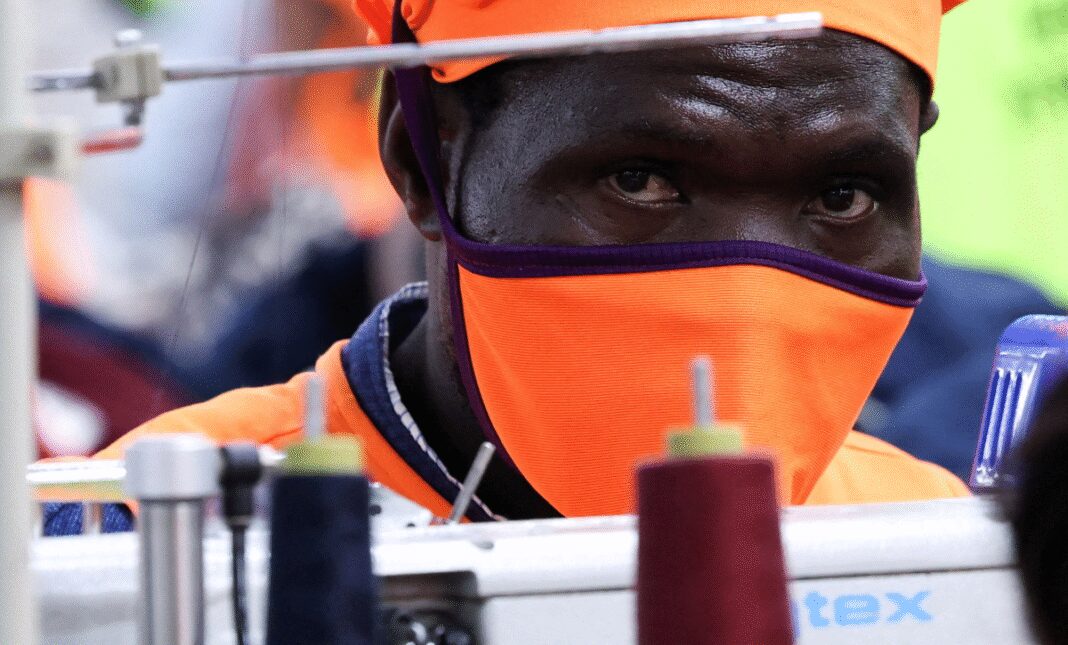The Context and Implications of AGOA’s Expiration: Insights from Margaret Olele
What’s the Context?
Nigerian business leader Margaret Olele has voiced critical concerns regarding the expired Africa-U.S. trade pact under the African Growth and Opportunity Act (AGOA). She argues that a short-term renewal would exacerbate uncertainty for African exporters. Instead, reforming AGOA is essential to drive investment in vital sectors, such as critical minerals. This insight comes against a backdrop of growing anxieties about AGOA’s future and its implications for African economies.
The AGOA was established in 2000 under President Bill Clinton to strengthen economic ties between the U.S. and African nations. However, the pact lapsed at the end of September 2023 without a clear path forward. The Trump administration indicated support for a one-year extension, yet a government shutdown has complicated discussions on renewal.
AGOA provides duty-free access to the U.S. market for a wide range of African products, from textiles and clothing to agricultural goods and minerals. In the wake of uncertainty surrounding its renewal, African governments and investors have begun to lobby for a one- to two-year extension, hoping to buy time for more comprehensive discussions in Congress.
The Future of U.S.–Africa Trade Relations
The framework of U.S.–Africa trade relations is evolving, particularly as the U.S. implements new tariffs and shifts toward more reciprocal tariff measures. This shift may directly impact preferential trade agreements like AGOA, amplifying the need for clarity and stability in trade access for African countries.
Concerns about AGOA’s future have prompted many African nations to consider bilateral trade agreements with the U.S. to mitigate potential losses. There’s also an increasing push for diversification of trade partners and fortifying intra-African trade through the African Continental Free Trade Area (AfCFTA).
Going forward, U.S. engagement with Africa is projected to become more strategic, with specific focuses on sectors that are crucial to global supply chains. These include critical minerals and energy sources needed for electric vehicle batteries, agribusiness that fosters food security, and the burgeoning digital economy, which encompasses fintech and AI-enabled services.
The Impact of New Tariffs on Nigeria’s AGOA Exports
A crucial element of this discussion involves how Trump’s recent tariffs are impacting Nigeria specifically. Prior to the tariffs, Nigeria’s oil and gas exports benefited from duty-free status under AGOA. With the imposition of a 15% tariff on these exports, Nigeria now faces diminished competitive advantages, adversely affecting its trade surplus with the U.S.
Many Nigerian businesses have structured their operations around the AGOA preferences. With the recent tariff changes, they may find their profit margins shrinking or face the untenable choice of absorbing the increased costs, a burden that many small enterprises cannot easily shoulder. Consequently, the new tariffs might lead to reduced export volumes to the U.S., or compel American buyers to shift their sourcing to countries that retain duty-free access or lower tariffs.
Nigeria’s Efforts to Renew AGOA
The road to renewing AGOA for Nigeria is fraught with challenges, primarily due to uncertainty surrounding when, how, or even if AGOA will be renewed. Eligibility requirements for AGOA demand adherence to principles concerning human rights, rule of law, and transparency. These standards, while important, can sometimes complicate diplomatic discussions.
Despite criticisms regarding Nigeria’s historical underutilization of AGOA, the Federal Ministry of Industry, Trade and Investment has initiated export strategies aimed at maximizing the benefits of the agreement. The private sector has been proactive in engaging U.S. Congress members to explore mutually beneficial adjustments to AGOA.
Proposed Changes for a Renewed AGOA
Should AGOA be renewed, several key changes could make the agreement more stable and beneficial for Nigerian exporters. A primary suggestion is to ensure predictability in trade arrangements, ideally extending the renewal period to over a decade. This stability would encourage exporters to scale up production, enhance quality, and engage in longer-term supply contracts.
Currently, AGOA’s advantages center predominantly on a narrow range of sectors, especially textiles. A broader scope should encompass value-added products, such as processed foods, to diversify Nigeria’s export base and foster industrial growth.
Moreover, the focus should not rest solely on trade facilitation. There’s significant potential for U.S. firms to invest in African markets, which could lead to new investments in sectors such as construction, logistics, and energy—areas that are crucial for enhancing trade infrastructure.
This engaging discourse underscores the need for a nuanced approach to AGOA’s future, acknowledging its potential as a catalyst for economic growth while addressing the structural inadequacies that may hinder its efficacy in transforming trade relations between the U.S. and Africa.



